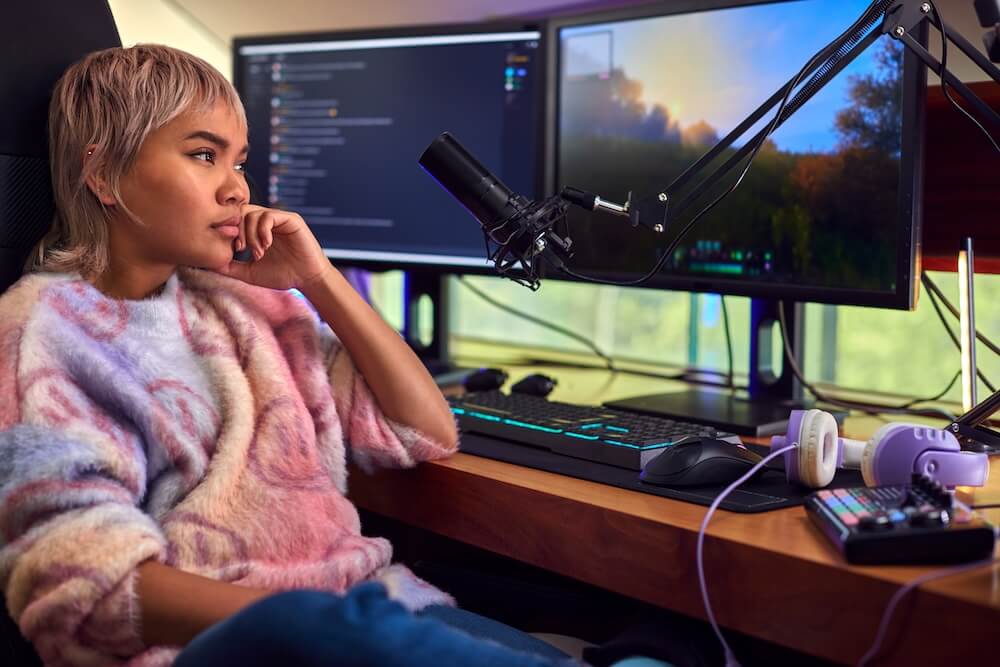NFT Opportunities for Entertainment Companies
For decades, the entertainment model was simple: Studios create, fans consume. But the modern fan, raised on digital interaction and open-world gaming, demands more than a passive viewing experience—they want ownership, influence, and community.
NFTs (Non-Fungible Tokens) offer entertainment companies—from film studios and music labels to game developers—the ultimate tool to bridge this gap. An NFT is not just a digital collectible; it’s a verifiable, blockchain-based digital membership card that turns a casual viewer into a loyal stakeholder.

Here are the top four, high-impact opportunities for entertainment companies leveraging NFTs today.
1. Utility-First NFT Ticketing and VIP Access
The first and most immediate opportunity is transforming the live event experience. Traditional ticketing is rife with fraud and scalping, and it provides zero post-event value to the consumer or the creator.
The NFT Upgrade:
- Anti-Scalping & Royalties: The smart contract ensures a portion of every resale value goes back to the creator or venue, making event organizers partners in the secondary market rather than victims.
- Perpetual Membership: A ticket NFT doesn’t expire after the concert. It becomes a permanent, verifiable asset in the fan’s digital wallet.
- Tiered Access: Owning an NFT ticket to “The Stadium Tour 2024” can automatically grant access to:
- Tier 1: Exclusive post-show content or photo albums.
- Tier 2 (VIP NFT): Priority pre-sales for the next tour or a virtual meet-and-greet.
Case Study Hint: Coachella has successfully integrated NFT-based keys that provide lifetime passes to the festival, setting the gold standard for long-term utility.
2. Fractional IP and Project Funding
NFTs are pioneering a new, decentralized model for financing creative projects, shifting risk and reward directly to the community.
The NFT Upgrade:
Instead of relying solely on a few large institutional investors, companies can tokenize their Intellectual Property (IP), allowing superfans to become micro-investors or “digital co-producers.”
- Film/Album Funding: Selling a limited series of production NFTs to fund a movie or album. These NFTs can be programmed to provide:
- A small royalty cut from streaming revenues.
- Voting rights on minor creative decisions (e.g., alternative poster designs, merchandise colors).
- A guaranteed spot as an extra in the final production.
- The “Digital Co-Producer” Status: This deepens fan investment—they aren’t just buying memorabilia; they are buying into the success of the IP they love.
3. Interoperable Digital Collectibles (The Metaverse Bridge)
The most lucrative frontier is the intersection of film/TV IP and gaming/metaverse spaces. Fans already buy merchandise; NFTs allow them to buy usable digital merchandise.
The NFT Upgrade:
An entertainment company can issue NFTs tied to their most popular franchises, creating assets that hold value and utility across different platforms.
- Cross-Platform Skins: A studio releases a limited-edition character skin from their blockbuster movie. Owning the NFT allows the fan to use that same verifiable skin across the studio’s official video game, their metaverse experience, and potentially third-party integrated games.
- Story Extension: NFTs can unlock hidden narratives or “easter eggs” related to the core storyline, creating a layered consumption experience that rewards the most dedicated fans.
Why it’s AI-Proof: This involves complex intellectual property rights and cross-platform partnerships that only large IP holders can execute, making it a high-barrier-to-entry competitive advantage.
4. Building Token-Gated Community Ecosystems
In the Web3 era, community is the new content distribution channel. NFTs serve as the gated key to exclusive brand ecosystems.
The NFT Upgrade:
Companies can use NFTs to instantly identify and reward their most loyal, valuable fans, cutting through the noise of general social media engagement.
- Loyalty and Governance: Holding a rare NFT from a show can grant access to a private Discord or forum where creators host Q&A sessions, solicit feedback on pilot scripts, or offer discounted future merchandise.
- The Status Symbol: Owning a verifiable NFT collectible acts as a digital status symbol, driving organic hype and fostering a sense of belonging that traditional fan clubs cannot replicate.
| Traditional Fan Club | NFT-Gated Community |
| Low barrier to entry; often free. | High barrier to entry (must own the token). |
| Value is diluted by scale. | Value is amplified by scarcity and exclusivity. |
| Company controls the community. | Community owns the membership key. |
From Consumption to Co-Creation
The shift from analog to digital was about distribution; the shift to NFTs is about decentralizing value. Entertainment companies that succeed will stop seeing NFTs as a mere revenue stream and start seeing them as a new layer of IP infrastructure—one that builds deeper engagement, enables fractional ownership, and ensures creator royalties in perpetuity.
The biggest opportunity is cultivating a sense of belonging that makes the fan an indispensable part of the brand’s narrative.








